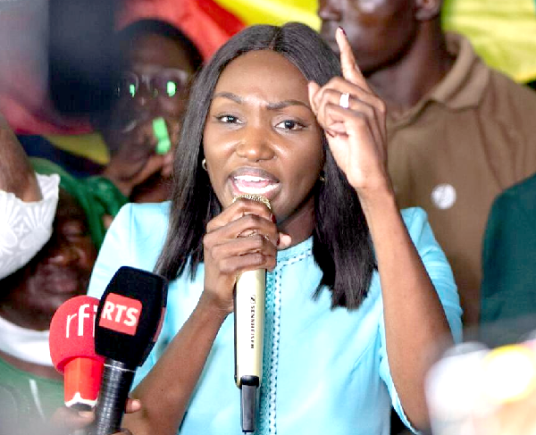
Senegal heads for presidential polls tomorrow
After several weeks of mass civil protests across Senegal against incumbent President Macky Sall, who decided to postpone the presidential election originally scheduled for February 25 to the end of the year, the country now votes tomorrow, Sunday, March 24.
Advertisement
Sunday’s election is set to be Senegal’s fourth democratic transfer of power since it gained independence from France in 1960, and the country is viewed as a pillar of stability in a region that has seen dozens of coups and attempted coups in recent years.
Nineteen presidential candidates including a woman were in the ran to succeed incumbent President Macky Sall whose term ended this year but the ruling party has nominated Sall's former prime minister, Amadou Ba who resigned in order to lead the rulling party.
More than seven million Senegalese have registered to vote in this year’s presidential election which is touted as the most unpredictable and observers expect a runoff between leading candidates.
The contestants
Analysts say Amadou Ba and Bassirou Diomaye Faye, who is backed by Sonko, are likely to emerge among the front-runners. Faye who has been detained for sometime now was freed from prison last week, in time to spend the final days of the run-up to Sunday’s vote on the campaign trail. Sonko, who came third in the 2019 presidential election, has been detained since July 2023, and was disqualified from this year's presidential race.
Other contenders for top spots in the race are Idrissa Seck, who has run in previous races and served as Prime Minister some 20 years ago, Khalifa Sall, a former mayor of Dakar and long-time opposition figure. Sall and the President are not related, while Anta Babacar Ngom, the first woman to run for president in years, is the only female presidential candidate in the race, but few expect her to gain a significant share of the vote.
Whoever comes out on top will be tasked with steering the traditionally stable West African nation out of years of turmoil, and managing revenues from recently discovered oil and gas reserves.
Amnesty law passed
The election race was also fired up by a rapidly passed amnesty law that last week led to the release from prison of Bassirou Diomaye Faye and the charismatic Ousmane Sonko, figureheads of the anti-establishment opposition. President Sall’s surprise move to release Sonko and Faye has helped to defuse tensions that had escalated in recent months. Election observers say Sunday’s vote is more likely to be peaceful.
Sall sparked one of Senegal's worst crises in decades with his last-minute postponement of the presidential election, which triggered deadly protests in the traditionally stable West African country, with much of the opposition and civil society suspecting the President of trying to prolong his term in office.
While Senegal was spared the flurry of military coups that have rattled West African countries since 2020, President Sall was accused of trying to engineer a constitutional coup d’etat after he postponed the presidential election from February to December. President Sall said the delay was necessary to investigate allegations of corruption among aspiring presidential candidates.
The population
In a country where more than 60 per cent of the population is under 25, the number of young Senegalese not engaged in employment, education or training reached almost 35 per cent in 2019, according to the International Labour Organisation.
An Afrobarometer poll conducted in 2022 also revealed that almost three-quarters of Senegalese citizens believe the government is mishandling the nation’s finances. The same survey also found a significant shift in public sentiments: sixty-two per cent of respondents said the economic outlook was unfavourable, compared with just 33 per cent five years earlier.
About half of the country’s 17 million people live in poverty, according to the United Nations Development Agency. Migration also increased during President Sall’s regime, with thousands of Senegalese making the dangerous journey to Europe due to dissatisfaction with the economic situation at home.
Deadly unrest
Senegal also witnessed several episodes of deadly unrests between 2021 and 2023, triggered in particular by a bitter stand-off between now-released opposition figure, Ousmane Sonko, and the state, which led to the killing of dozens of people, hundreds injured, and hundreds more arrested in riots which saw clashes with security forces and major property damage.
Economic and social tensions, as well as concerns that President Sall would run for a third term, also fuelled the unrest that left dozens killed and hundreds arrested. In a bid to end the latest crisis, the government passed an amnesty law which led to the release of hundreds of prisoners, including Sonko and Faye. The pair are hoping to harness Sonko's charisma and popular appeal in a country where half of the population is under 20.
Senegal’s youth
Sonko has drawn a passionate following with Senegal's youth through his sovereigntist rhetoric, as well as attacks on elites, multinationals and former colonial ruler France. "The greatest danger facing Senegal today is Amadou Ba," Sonko said during a press conference the day after his release, denouncing the former Prime Minister as a "billionaire civil servant" who "will be the president of foreign countries".
Experts have warned of the potential for flaring tensions on Sunday, particularly if Ba wins in the first round or Faye fails to reach the second. Provisional results could be known overnight.
Senegal has one of the best-developed tourist industries in Africa, but its economy depends on foreign assistance. The main obstacles to the economic development of the country are its great corruption with inefficient justice system, very slow administrative formalities and a failing education sector.
It, however, enjoys cordial relations with its neighbours. Senegal, a member of the Economic Community of West African States (ECOWAS), is bordered by Mauritania, Mali, Guinea and Guinea-Bissau all French-speaking countries.




